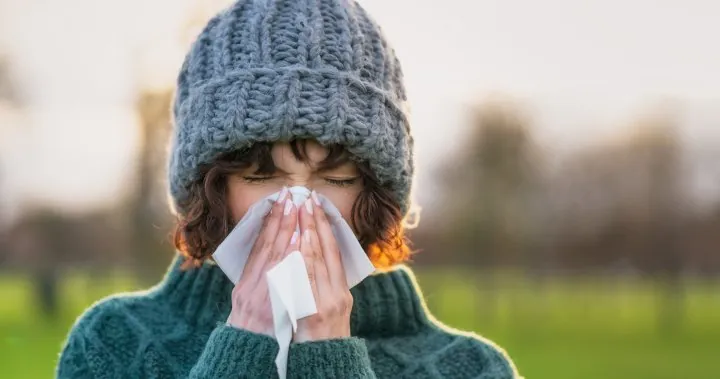
Brace Yourself, Canada! The Ultimate Guide to This Year’s Cold and Flu Season
2024-10-02
Why You Should Get Your Flu Shot NOW!
This season, experts are emphasizing the importance of the influenza vaccine more than ever. Expect to see vaccine rollouts starting soon, prioritizing vulnerable populations like the elderly and those with pre-existing health conditions.
Gerald Evans, an infectious disease specialist from Queen's University in Kingston, indicates that the leading strain this season is projected to be H3N2, a subtype of influenza A that is known for causing more severe symptoms, especially in older adults and young children. Additional strains, including H1N1 and influenza B, will be present but are not anticipated to dominate the flu landscape.
What Can We Learn from the Southern Hemisphere?
Data from countries in the southern hemisphere, such as Australia and New Zealand, provides critical insights into this year’s trends. Historically, their flu seasons can give us a glimpse of what’s to come for Canada. Evans predicts a typical flu season beginning in late December and peaking in January, but cautions that unpredictable travel patterns could shift the timeline. Increased travel from the southern hemisphere could lead to a sudden introduction of the flu virus, causing spikes in cases earlier than expected.
But wait, there’s more! Alongside the flu, Canadians should be bracing for a potential surge in various respiratory illnesses, including respiratory syncytial virus (RSV) and even COVID-19. Pediatric emergency doctor Kevin Chan notes that RSV cases tend to rise sharply in early November.
A Sneak Peek at COVID-19 Trends This Season
Despite an apparent decline in summer COVID-19 cases, colder weather will likely entice more individuals to gather indoors, providing the virus a conducive environment to spread. On a positive note, the arrival of advanced vaccine formulations by the end of September is expected to lessen COVID-19’s impact during the winter months.
But are vaccines your only line of defense? Not quite. The Public Health Agency of Canada (PHAC) recommends additional protective measures. Apart from the flu and COVID-19 vaccines available for individuals over six months, an RSV vaccine is now accessible for older adults and, eventually, pregnant women.
Act Fast—Time is of the Essence!
The clock is ticking! Families with infants, particularly those under two years old who are at higher risk, should be on the lookout for publicly funded RSV vaccines, available in provinces like Ontario and Quebec. Health Canada recently approved a new monoclonal antibody treatment, nirsevimab, aimed at protecting babies during their critical first RSV season.
Hand Hygiene: Your Best Friend This Season!
While vaccines are critical, remember that good old-fashioned hand hygiene is essential. Regular handwashing and utilizing alcohol-based hand sanitizers can significantly reduce the risk of contracting not only the flu but other respiratory infections, too.
In summary, as we dive into the cold and flu season, staying informed, getting vaccinated, and maintaining cleanliness is vital to safeguard your health and the well-being of those around you. Don't be caught off guard—protect yourself and your loved ones!









 Brasil (PT)
Brasil (PT)
 Canada (EN)
Canada (EN)
 Chile (ES)
Chile (ES)
 España (ES)
España (ES)
 France (FR)
France (FR)
 Hong Kong (EN)
Hong Kong (EN)
 Italia (IT)
Italia (IT)
 日本 (JA)
日本 (JA)
 Magyarország (HU)
Magyarország (HU)
 Norge (NO)
Norge (NO)
 Polska (PL)
Polska (PL)
 Schweiz (DE)
Schweiz (DE)
 Singapore (EN)
Singapore (EN)
 Sverige (SV)
Sverige (SV)
 Suomi (FI)
Suomi (FI)
 Türkiye (TR)
Türkiye (TR)